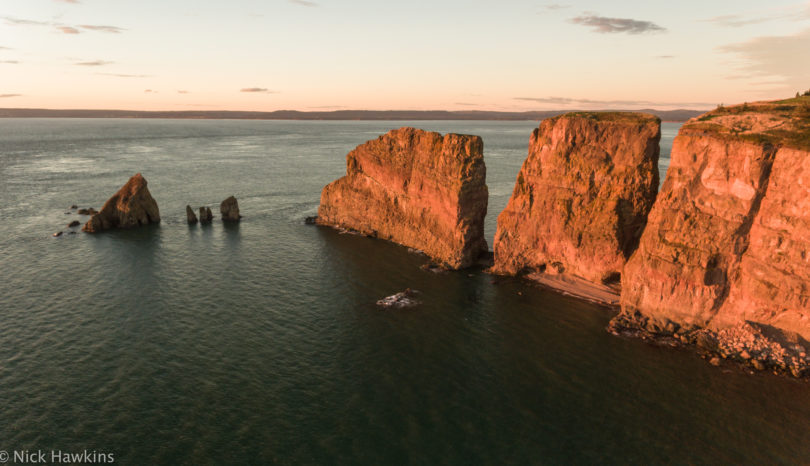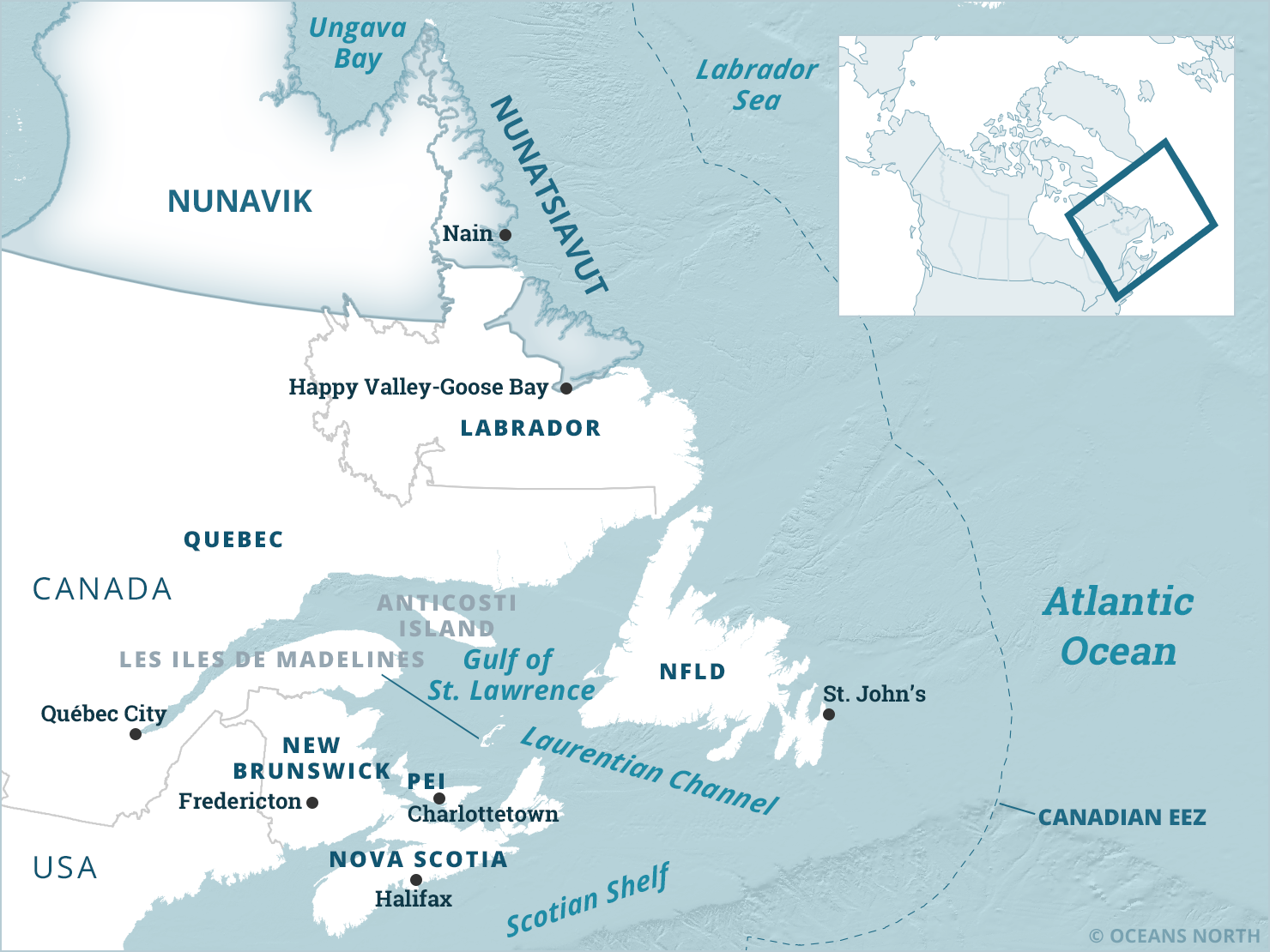Atlantic Canada covers New Brunswick, Nova Scotia, Newfoundland and Labrador, Prince Edward Island and their surrounding waters. The rich coastal and offshore regions form an important part of life and work for Atlantic Canadians, and especially for Mi’kmaq, Wolastoqiyik, Innu and Inuit peoples, the area’s original inhabitants.
Related Resources
Atlantic Canada Public Opinion Study
Oceans North, the Conservation Council of New Brunswick and the New Brunswick chapter of Canadian Parks and Wilderness Society were interested in better understanding how Atlantic Canadians (residents of Nova Scotia, New Brunswick, Newfoundland and Labrador, and Prince Edward Island) perceive the state of the oceans. This report contains the results of polling that was conducted over the summer of 2019. The survey was supported by The Ocean Foundation.
Atlantic Canada Environmental DNA Workshop Report
This report details the outcomes of the first Atlantic Canada Environmental DNA Workshop, held at the Bedford Institute of Oceanography in Dartmouth, Nova Scotia and hosted by Fisheries and Oceans Canada, the Nova Scotia Salmon Association and Oceans North. It includes recommendations for future work, summaries of the presentations given and a map of past, current and future research projects involving environmental DNA in Atlantic Canada.


